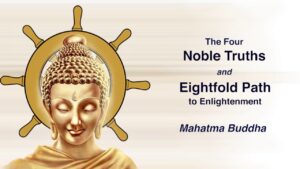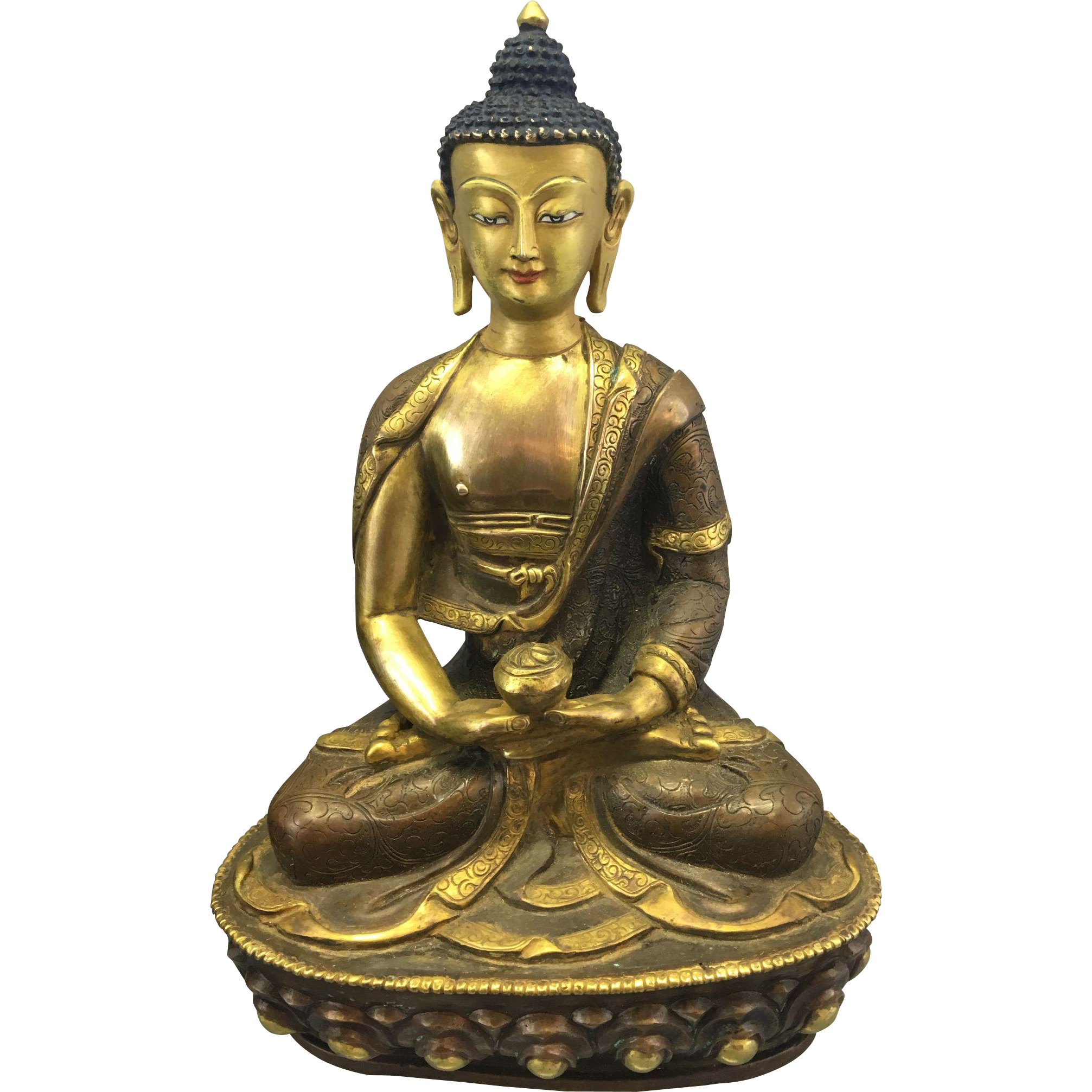Welcome to our sixty third online suggested practise for the week. We are now broadcasting a live teaching each Monday evening. If you would like to participate please contact us using the contact form on the homepage.
1.0) If you feel so inclined, begin by reciting the usual prayers (please follow below links for text). Alternatively, try to think or articulate a wish for all beings to achieve liberation from suffering, etc .
Four Thoughts: contemplating each in turn – http://northantsbuddhists.com/the-four-thoughts/
Refuge Prayer: twice in Tibetan, once in English – http://northantsbuddhists.com/the-refuge-prayer/

2.0) The Four Noble Truths and Eightfold Path – Presented by Joyce Stirling

The Buddhist Path to Happiness
As humans we long for happiness.
We search for ways to achieve happiness.
We are in the constant state of wanting to be happy.
And thus the constant search for what would make us happy causes us to suffer and be miserable.
A lot of times things that seem to make us happy actually end up causing us to feel sad.
Things that once held value become old and we find them burdensome because we want to replace them.
We go through life wanting and looking for things while thinking of the “I” or the “Me”. We always utter the words “my
happiness”. But this constant selfish longing to fulfil the wants of the “SELF” and the “ego” causes us more strife.
Buddha however taught us that there is a simple path to happiness.
It is COMPASSION.
Compassion lets us forget the selfishness and the constant wants of the EGO and thinks of the happiness of others.
Why Do We Need To BE Happy?
Why do we need to be happy? Happiness gives us the smile on our faces when
we wake up in the morning to face a hard day. Happiness is like a boost to our system that allows us to do anything
without any complaint and to face any pain head on.
But happiness is not just that giddy, excited feeling.
It is also the serenity and contentment in our hearts when we lie down at night. It is the feeling of calm despite all
the troubles. And this is the very reason why we need to be happy.
Happiness has many benefits. Aside from the obvious fact that all humans
seek it, happiness also helps us go through the suffering in life much more easily.
But true happiness does not come from things.
It comes from being able to share moments of compassion with other beings.
It comes from kindness and charity to those who need it.
Happiness also comes from peace when we do not anger those around us.
The path of real happiness comes from compassion.
The Path of Compassion
Buddha has taught many about being compassionate. In his teachings, Buddha taught us about two things that we need to achieve enlightenment. These are
wisdom and
compassion.
He taught that one is related to other. In order for one to be wise, one must be compassionate; and to be compassionate, one must be wise.
Wisdom and Compassion
Compassion stems from the understanding that there is no such thing as a boundary between ourselves and others; that we are all one.
Suffering stems from many things but it mostly comes from selfishness.
It comes from thinking about the “I” and the “MY”.
Hence when we become wise and understand that there is no such thing as them and me, we become more loving and compassionate.
The teachings of the Buddha give rise to wisdom. They teach us the Right Way through the Eightfold Path. These teachings also teach us that all beings suffer through the lessons of the Four Noble Truths. But once
we understand these teachings, we begin to learn that we need to be more compassionate and help others relieve themselves of suffering.
What is True Compassion?
Compassion is the inner call of the universe and all its beings to our hearts to be one with those who need us.
It is understanding that all beings suffer, and that being a part of this whole, it is our duty to help those who need
us. It is also not causing pain to others.
Compassion chooses the path of peace and caring for all instead of putting others in strife or misery.
True compassion is not helping others and then seeking fame, glory or praise. It is not the form of help where we ask others to repay our kindness or even thank us. True compassion stems from the wisdom that all beings
and oneself are but one. Anatta: no self. There is no I, there is only WE.
True compassion for others on the other hand is not just helping others. It is also living a day to day life that is helpful to all.
Simple acts such as conserving water helps others.
Being on time helps others.
Doing your work dutifully helps others.
Helping those who are despised by others.
These are acts of compassion.
How Does Compassion Lead to Happiness?
Compassion leads to happiness because it gives you no room for anger.
Compassion erases feelings of selfishness and self doubt. It allows you to rejoice in simple things and to truly celebrate
life.
1. We truly feel happy when we help others
Scientific studies show that humans experience an increase in dopamine and serotonin when they help others. Different religions talk about helping others as the way to reach paradise.
The truth of the matter is that we feel genuinely happy when we see others happy as a result of our helping them achieve
happiness.
2. Compassion makes life easier
Many complicated things arise from selfishness. When we think too much about our self worth and our own selfish desires, we become hateful and resentful of others. These negative emotions pollute our beings. On the
other hand, when we are compassionate, we do not demand from others. We do not hate or become selfish. This allows us to live a life which is much more simple and free from negative emotions.
3. Compassion for oneself leads to self care
At lot of times we forget to take care of ourselves.
We try to take care of others too much neglecting our own needs. This leads to feelings of low self esteem and also makes
us feel undervalued. However, once we truly learn the balance of helping others and caring for ourselves, we begin to
be more kind-hearted and humane.
Buddha himself tried to deny himself for six years as an ascetic.
But when he meditated and discovered the Middle Way, he learned that he needed to balance his love for others as well
as his love for himself.
4. Compassion allows us to enjoy life more – Life is full of suffering. This is the first teaching of the Four Noble Truths.
And since life is already full of suffering, we need wisdom and compassion in order to bear living life.
When we are compassionate to ourselves and to others, we do not become easily angered; rather, we try to understand things before reacting.
When we are compassionate to ourselves, we do not overwork ourselves to earn money, but rather live a life of balance.
Compassion helps us gain wisdom and wisdom allows us to understand life.
Gaining this understanding gives us meaning in our lives.
This meaning allows us to enjoy life.
Compassion in Everyday Life
Living the path of Wisdom and Compassion is an everyday task.
This is done by following the Eightfold Path. We begin to learn that each of these eight teachings of the Buddha is not
separate from the others, but they are but one. And in order to be truly compassionate every day, we must live a life
in accordance with the Eightfold Path.
The Eightfold Path is the way of kindness, wisdom and gentleness.
It allows us to grow not only in mind and body but also enables others to grow as well.
If we choose compassion, we must choose to live by it every day.
Once we realize that the path to true happiness is compassion, we are on our way to Enlightenment.
Adapted from https://teachingsofthebuddha.com/the-path-to-happiness-compassion/
A guided meditation based on ‘The Light of Universal Compassion’ exercise taken from Akong Tulku Rinpoche’s Taming The Tiger (Rider, 1994) – Presented by Bob Pollak
—o0o—
